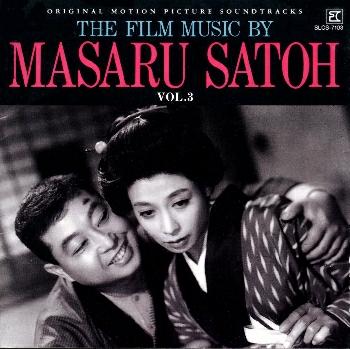

© 1999, 2014 Lawrence Tuczynski
| Title | The Film Music By Masaru Satoh Vol. 3 |
| CD Label | SLC Inc. |
| CD Number | SLCS-7103 |
| Music by: | Masaru Satoh |
| Number of tracks | 13 |
| Running time | 74:35 |
| Number of discs | 1 |
| Year of release/manufacture | 1992 |
| REVIEW |
Feb. 21, 2000 This CD seems to be drama, with several about women, especially prostitutes. Track #1 starts off with gentle yet driving music. It sounds like something you might see in a scene involving an old steam powered train riding along the tracks or maybe a view from a low flying airplane. The music then takes a turn to something mysterious and suspenseful. Track #2 is also mostly suspense while Track #3 gives us a slow male vocal with the feel of a French cafe. Track #6 is also a male vocal track. The rest of the CD runs a variety of styles but is mostly Jazz oriented or suspense type music. All in all this was a good sounding CD and a pleasure to listen to. |
|
Updated March 25, 2001 Title: The Film Music By Masaru Satoh Vol. 3 (LITERARY MOVIE VOLUME)
Translations & notes courtesy of Jolyon Yates
(Track # 1 & 13 in Stereo) |